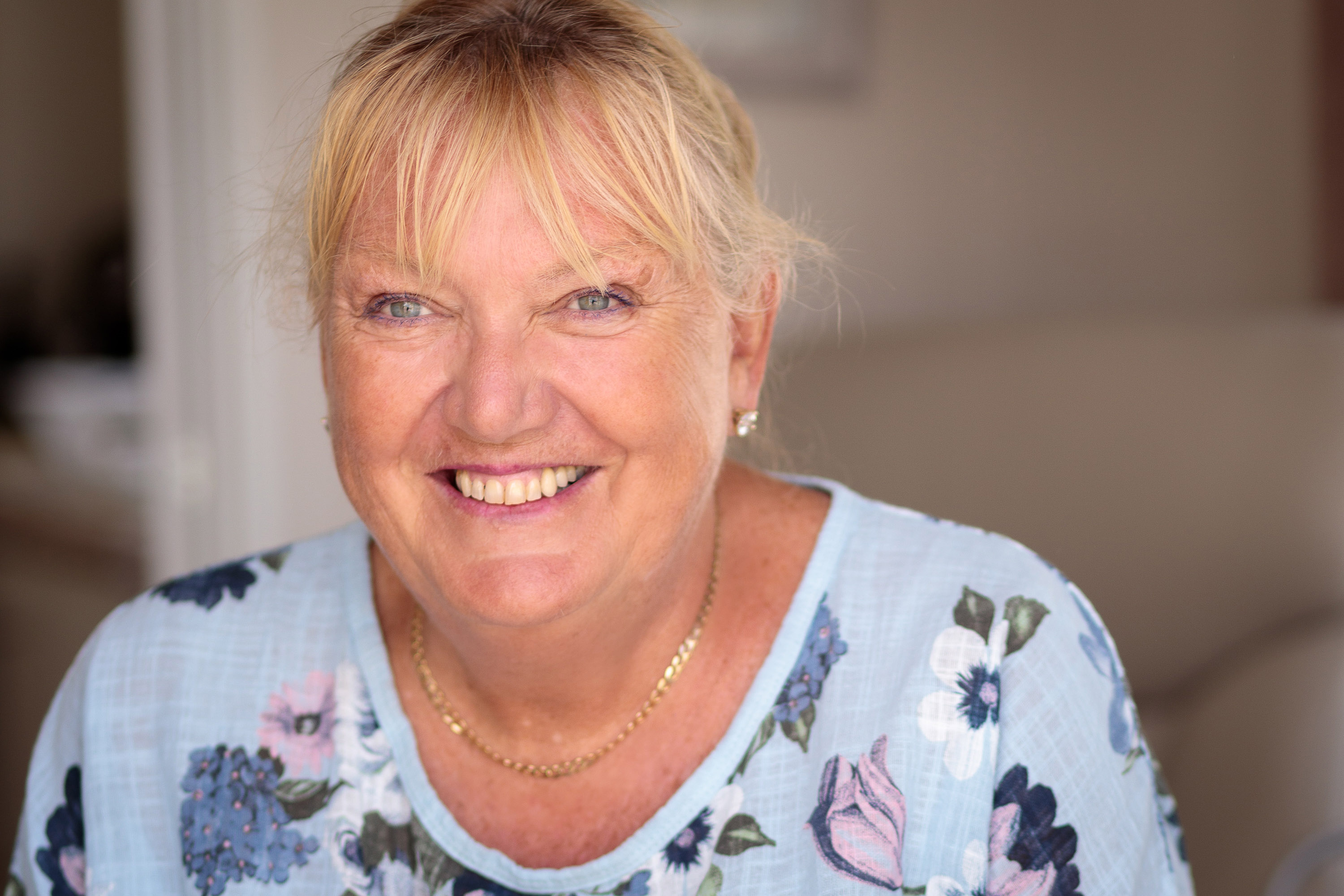Increasing prevalence
More than 80% of sight loss occurs in people over the age of 601. Demographic ageing in the UK is leading to substantial year-on-year increases in the prevalence of age-related sight-loss. The most common of these, accounting for two-thirds of all sight loss is age-related macular degeneration (AMD)2.
AMD is a degenerative condition affecting over 600,000 people in the UK. Prevalence of AMD increases with age as cell regeneration reduces, affecting 20% of people aged 90 years3. It is estimated that as the population continues to age, there will be 1.3 million people in the UK with AMD by 20504.
Impact on mental health
Depression and anxiety have both been shown to be significantly higher in people aged 60 years and older who are affected by sight loss compared to normally sighted older adults5. In particular, depression is associated with reported visual functioning (the extent to which ability to carry out daily activities are affected by sight loss) rather than with visual impairment in itself6. A 2016 study reported that 43% of attendees at low vision rehabilitation clinics in the UK had depressive symptoms and that three-quarters of these were not receiving any treatment or support for depression7.
Additionally, visual impairment in the elderly has been shown to be a predictor of suicide8. In identifying these relationships, it is equally important to recognise that depression is not an inevitable consequence of visual impairment9, any more than it is an inevitable part of ageing. With the right support people can adjust and live well with sight loss.
Older people are less likely to access talking therapies compared to the general population10. This means that those at greatest risk of sight-loss related depression also belong to a demographic known to face barriers to counselling support. Some studies indicate that sight-loss itself is a barrier to accessing services11, further reducing likelihood of access to counselling support.
Social impact of sight loss
In general, fear of losing of sight is greater than for any other sense12. Loss of identity and the need to renew sense of self are common amongst people experiencing sight loss13 as visual impairment impacts upon ability to continue activities such as driving, work, participating in hobbies and interests and maintaining social activities and connections.
Evidence for counselling
Research and guidance suggest that counselling, delivered as part of rehabilitation services, can contribute to the reduction of depression among older adults with age-related sight loss14.
In her 2010 mixed method study involving 18 people (average age 64) with sight-loss Dr. Mhairi Thurston found there to be seven significant themes of transition to blindness15:
- The experience of diagnosis
- Coping with sight deterioration
- Experiencing loss
- Experiencing changed perception of self
- Experiencing others (particularly becoming isolated)
- The emotional impact of rehabilitation
- Identifying things that are therapeutic
The same research indicated that whilst people experiencing sight-loss recognise that it would have been helpful for them to have been offered counselling at the time of diagnosis, there was also some scepticism of the value of counselling and concern that the counsellor would not understand living with sight loss.
Current provision of counselling
Leading UK charities RNIB and The Macular Society provide counselling services as part of their support to people coming to terms with the profound lifestyle changes and effects on mental health and physical wellbeing. The Macular Society’s telephone counselling service offers counselling support to people with severe visual impairment, many of whom live alone.
The service is also open to family members, partners and friends of people experiencing sight loss. As well as offering counselling, the service refers callers to its befriending scheme and local support groups. Counsellor and BACP member Patsy Southwell says of her work with the Macular Society, “My aim in the counselling is often to restore a sense of worth and self-esteem which plays a vital role in reducing feelings of loneliness and combatting depression.”
Suzanne Roberts, BACP member and Macular Society counselling service manager says: “We aim to not only provide a therapeutic space; we work with our clients to maximise their vision through adapting new strategies to help them cope. To live a life that has purpose and enjoyment despite their visual impairment or their age.”
RNIB has a BACP-accredited service offering a choice of one-to-one counselling, online counselling, and telephone support groups facilitated by counsellors.
Recommendations
BACP calls for greater awareness and understanding of the impact of age-related sight loss and the value of counselling to people of any age experiencing sight loss.
Explanation of counselling and its usefulness should be offered at all stages of age-related macular degeneration.
There remains a need for further research into psychological support in response to AMD and for counselling services to recognise the additional barriers to access faced by people with degenerative sight loss and to act to ensure that services fully engage those who need them.
If you have any comments or feedback on this briefing, please email publicaffairs@bacp.co.uk
Find out more...

Older people
Exploring the role of counselling in improving the lives of older people, and promoting the value of talking therapies to this group, is a priority for BACP.

'Counselling was like a bridge that brought me through that period'
Irene shares her powerful story of how counselling helped her cope with macular degeneration
References
1 Sinclair A, Ryan B and Hill D (2014) Sight loss in older people: The essential guide for general practice
2 The Macular Society (2016) Age-related macular degeneration: collaborating to find a cure.
3 The Macular Society web site; https://www.macularsociety.org/what-age-related-macular-degeneration
4 Macular Society (2018) Nearly 1.5m people in the UK are affected by macular disease (website news story)
5 Hilde P. A. van der Aa, Hannie C. Comijs, Brenda W. J. H. Penninx, Ger H. M. B. van Rens, Ruth M. A. van Nispen; Major Depressive and Anxiety Disorders in Visually Impaired Older Adults. Invest. Ophthalmol. Vis. Sci. 2015;56(2):849-854. doi: 10.1167/iovs.14-15848.
6 The Thomas Pocklingtom Trust (2016) Visual Impairment, Depression and Access to Psychological Therapies.
7 Nollet, C L et al (2016) High Prevalence of Untreated Depression in Patients Accessing Low Vision Services.
8 Waern M, Rubenowitz E, Runeson B, Skoog I, Wilhelmson K, Allebeck P. Burden of illness and suicide in elderly people: case-control study. Bmj 2002;324(7350):1355.
9 DeLeo D, Hickey PA, Meneghel G, Cantor CH. (1999) Ibid.
10 Age Uk (2016) Hidden in Plain Sight – The unmet mental health needs of older people
11 Hodge S, Thetford C, Knox P & Robinson J. (2015). Finding your own way around: Experiences of health and social care provision for people with a visual impairment in the United Kingdom. British Journal of Visual Impairment 33:200-211.
12 DeLeo D, Hickey PA, Meneghel G, Cantor CH. (1999) Blindness, fear of sight loss, and suicide. Psychosomatics ;40(4):339-344.
13 Thurston M. (2010) An inquiry into the emotional impact of sight loss and the counselling experiences and needs of blind and partially sighted people. Couns Psychother Res10:3Y12.
14 Horowitz A, Reinhardt JP, Boerner K. (2005) The effect of rehabilitation on depression among visually disabled older adults. Aging Ment. Health9, 563–570
15 Thurston M. (2010) Ibid.
